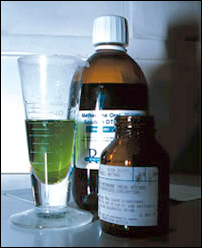Is MMT Safe for People With Dual Diagnosis
People affected by dual diagnosis conditions struggle with both a mental disorder and a substance abuse problem.
Dual diagnosis conditions can be especially difficult to treat, particularly when opiate addictions are involved. According to the Substance Abuse & Mental Health Services Administration, as many as 8.9 million adults suffer from dual diagnosis conditions within any given year. Of this 8.9 million, 55.8 percent receive no form of treatment while only 7.4 percent receive treatment for both conditions.
Methadone maintenance treatment or MMT can offer an effective treatment solution for opiate addiction. As dual diagnosis conditions entail two different types of disorders, the MMT approach can be of benefit provided certain treatment protocols are followed.
Methadone Maintenance Treatment
Methadone maintenance treatment employs a comprehensive treatment approach designed to provide the types of medical and psychosocial supports needed when treating opiate addiction, according to the U. S. National Library of Medicine. Methadone’s use as a medication therapy addresses the two biggest challenges recovering opiate addicts face: drug cravings and withdrawal effects. The use of psychosocial interventions alongside medication treatment helps keeps addicts actively engaged in the recovery process.

Methadone maintenance treatment is an effective way of dealing with drug cravings and withdrawal for people with or without co-occurring disorders.
Psychosocial interventions also target any potential co-occurring disorders that may affect a person’s recovery progress. As psychological disorders can develop prior to or as a result of drug abuse, methadone maintenance treatment models incorporate psychotherapy and group work to address any co-occurring symptoms a person may have.
Co-Occurring Disorders
Brain neurotransmitter chemicals regulate most every process in the body. These chemicals also determine a person’s overall psychological health and stability. Co-occurring psychological disorders result from neurotransmitter chemical imbalances in the brain. Any number and combination of circumstances can cause a psychological disorder to develop. Genetic, environmental and traumatic events can all predispose a person to developing a psychological disorder.
According to the U. S. National Library of Medicine, the types of psychological conditions most likely to develop alongside a substance abuse disorder include:
- Major depressive disorder
- Borderline personality disorder
- Obsessive-compulsive disorder
- Anxiety/panic disorders
Effects of Co-Occurring Disorders on MMT
Much like a psychological disorder, long-term drug use causes chemical imbalances in the brain. With dual diagnosis conditions, one disorder aggravates or worsens the symptoms of the other disorder. In other words, ongoing drug use will worsen only worsen a depression disorder. As the depression grows worse, drug use increases.
While MMT helps to alleviate persistent drug cravings and withdrawal effects, the symptoms of the psychological disorder will continue to drive drug-using behaviors when left untreated. For this reason, methadone maintenance treatment programs take a whole person approach when treating opiate addiction disorders.
Treatment Approach
As ongoing drug use only works to aggravate a co-occurring psychological condition, stabilizing the substance abuse disorder should be the first step in treating dual diagnosis conditions. Since methadone specifically treats opiate addiction withdrawal and drug cravings, MMT offers an effective means for stabilizing drug use.
As MMT treatment progresses, psychotherapy work can help recovering addicts deal with the underlying issues and symptoms that drive the psychological disorder. Additional group therapy and support group work can also help addicts develop effective coping skills for dealing with everyday life stressors.